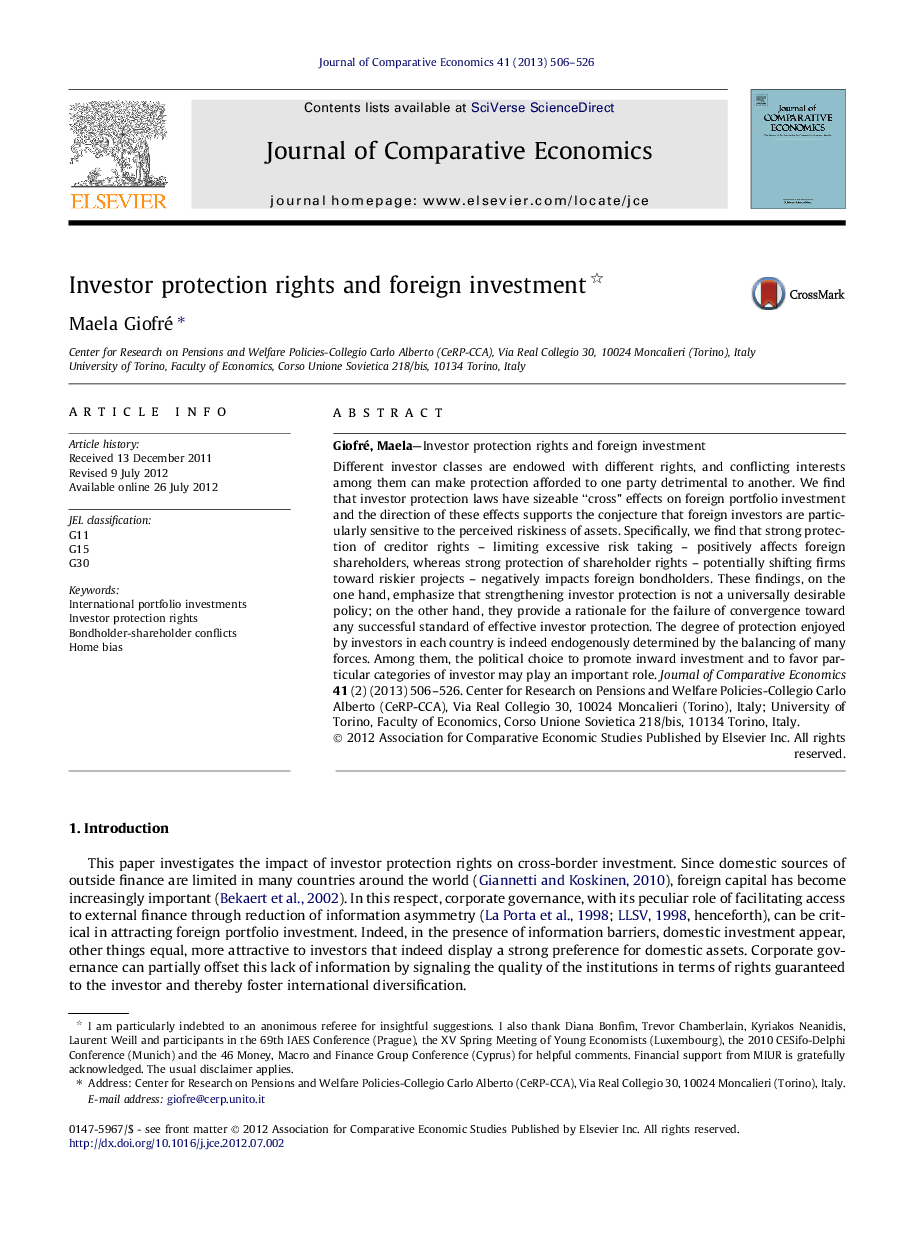| Article ID | Journal | Published Year | Pages | File Type |
|---|---|---|---|---|
| 5092219 | Journal of Comparative Economics | 2013 | 21 Pages |
Different investor classes are endowed with different rights, and conflicting interests among them can make protection afforded to one party detrimental to another. We find that investor protection laws have sizeable “cross” effects on foreign portfolio investment and the direction of these effects supports the conjecture that foreign investors are particularly sensitive to the perceived riskiness of assets. Specifically, we find that strong protection of creditor rights - limiting excessive risk taking - positively affects foreign shareholders, whereas strong protection of shareholder rights - potentially shifting firms toward riskier projects - negatively impacts foreign bondholders. These findings, on the one hand, emphasize that strengthening investor protection is not a universally desirable policy; on the other hand, they provide a rationale for the failure of convergence toward any successful standard of effective investor protection. The degree of protection enjoyed by investors in each country is indeed endogenously determined by the balancing of many forces. Among them, the political choice to promote inward investment and to favor particular categories of investor may play an important role.
Graphical abstractDownload full-size image
